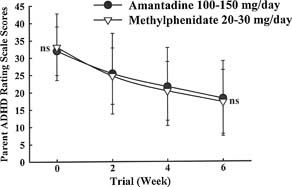The below content is completely stolen from HERE
It is well known that ADHD diagnoses and substance abuse problems are closely associated. It is estimated that substance abuse problems including dependence are up to twice as common among individuals with ADHD, which is not surprising given the impulsivity factor involved in ADHD. The problem is that until recently, most medications for ADHD have belonged to the stimulant category and as many, including us, have written before it is probably not the best idea ever to give drugs that have a relatively large abuse probability to people who are relatively likely to develop substance abuse problems. Right?
We’ve already written about atomoxetine and bupropion, two drugs with relatively low abuse potential (since patients don’t actually feel “high” from them) that are being successfully used in treating ADHD. But there is little doubt that the type of effect seen among patients who are using stimulants (like adderall, ritalin, etc.) isn’t being observed among patients taking non-stimulant medications. All of this means that patients on non-stimulants are getting less bang but with less risk. A dopamine agonist by the name of amantadine might change all of that according to a recent study.
Amantadine versus stimulants for ADHD treatment
Fourty children between the ages of 6 and 14 were enrolled in the study conducted in a psychiatric hospital in Iran. The kids were randomized into two groups a methylphenidate (ritalin) and amantadine group. Over a six week period the kids were assessed four times – at intake and then every two weeks -using an instrument that parents and teachers (who didn’t know what medication the kids were getting) would use to rate the child’s behavior on the 18 ADHD symptoms listed in the DSM-IV.
The final findings were very encouraging (see picture): The kids in both conditions improved greatly over the 6 weeks of the study and no difference was found between the two medications. the children in the amantadine condition actually suffered less side effects and significantly so when looking at side effects common to stimulant medication such as decrease in appetite and restlessness. While more studies are obviously needed, this randomized trial shows that amantadine is not only safe, but it may be safer than at least some stimulant medications while also providing the same effect on ADHD symptoms. Given that approximately 30% of patients don’t respond well to stimulants and that some families are afraid of giving stimulant medications to their children, at least partially because of the risk of substance abuse issues, non-stimulant medications can be an attractive alternative, and it seems like amantadine can deliver.
Final thoughts from Dr. Jaffe on ADHD medications and amantadine
One of the main reservations I have about the notion of using this medication for ADHD is that NMDA receptors are very important in learning, so it may be that we’re helping to resolve attention problems but making it more difficult to actually create memories that are crucial for learning. More research is necessary to see if these decreases in impulsivity are accompannied by improvements, and not reductions, in learning ability.
So, if you’re considering medicating a child who has been diagnosed with ADHD, I strongly support the notion given the difference that medication has made in my own life. However, I urge you to be educated and to consider non-stimulant options, especially as more are researched and as that treatment option becomes more available, less costly, and less likely to lead to abuse of the drug. With prescription drug abuse one of the fastest growing problems in the U.S., being careful is just sound advice.
Citation:
Mohammad-Reza Mohammadi, Mohammad-Reza Kazemi, Ebtehal Zia, Shams-Ali Rezazadeh, Mina Tabrizi, Shahin Akhondzadeh (2010) Amantadine versus methylphenidate in children and adolescents with attention deficit/hyperactivity disorder: a randomized, double-blind trial. Human Psychopharmacology.
